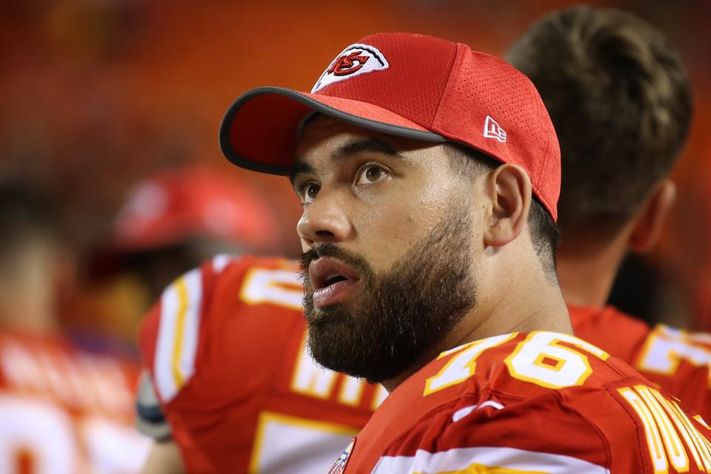McGill Faculty of Medicine alumnus Laurent Duvernay-Tardif (MD ‘18) is, as a member of the Kansas City Chiefs, the first Quebecer to win a Super Bowl title. The victory has placed the Chiefs’ offensive linebacker in the spotlight, with McGill administrators sparing no expense in promoting Duvernay-Tardif’s ties to the university with a banner unveiling ceremony and advertisements. Montreal Mayor Valérie Plante even hosted a public celebration for him in Parc Jean-Drapeau on Feb. 9. While Duvernay-Tardif acknowledged that this attention offers him an unprecedented amount of privilege—which he hopes will benefit his foundation’s work promoting youth sports and art education—he also stated that he would visit US President Donald Trump if his team was invited to the White House.
“I’m not going to talk about my political opinion about the States and everything, but I’ve never been to Washington,” Duvernay-Tardif told fans at the Montreal celebration. “I want to know what it’s like.”
Duvernay-Tardif’s decision to meet with Trump, should he be invited, is a missed opportunity to make a clear statement against bigotry. As a multimillionaire and professional athlete, Duvernay-Tardif can visit the American capital and see ‘what it’s like’ without having to play into a racist and misogynistic president’s rhetoric. Athletes from a variety of leagues have refused to visit the White House during Trump’s tenure without career-ending backlash.
Sports are not apolitical and do not exist in a vacuum. On a domestic and local level, fan bases are diverse communities that are affected unequally by past and present political realities. By not actively denouncing policies based in prejudice and bigotry when presented with the opportunity to do so, Duvernay-Tardif and other privileged athletes create environments where fans from marginalized communities may not feel safe or welcome.
A McGill football alumnus like Duvernay-Tardif should know better than most athletes that sports cannot exist free of scrutiny and personal politics. The #ChangeTheName campaign at McGill, led by Indigenous activists, is a recent illustration. Indigenous students have spoken about the feelings of isolation and insecurity that come with racist team names. The university refused to address the team name until April 2019, when the office of the Principal finally released a statement saying that the men’s varsity teams’ name would be changed.
Anti-Indigenous racism is a prominent feature of North American sports, extending well beyond McGill, and Duvernay-Tardif’s current NFL franchise is another perfect example. “The Chiefs” as a team name, along with the accompanying fan tradition of the “tomahawk chop,” is a caricature of Indigenous peoples.
At a time when unceded Indigenous territory is being invaded in Canada, and traditional burial grounds are being demolished for a wall along the US–Mexico border, professional athletes with financial security and large platforms have an opportunity to openly denounce these practices rooted in bigotry. For Duvernay-Tardif to say that personal politics can be put aside at this time is to completely ignore his own privilege and disregard the very real consequences of passively endorsing the Trump administration. Feeling unwelcome in stadiums and unsafe on one’s own land is a personal reality that many Indigenous individuals simply do not have the privilege to ignore.
It is naive to think that Duvernay-Tardif’s refusal to visit the White House would create any long-term political difference at the national level. But, for fans from marginalized communities, knowing that the players they have come to watch and possibly admire do not endorse discriminatory policies can make a significant and positive difference.









